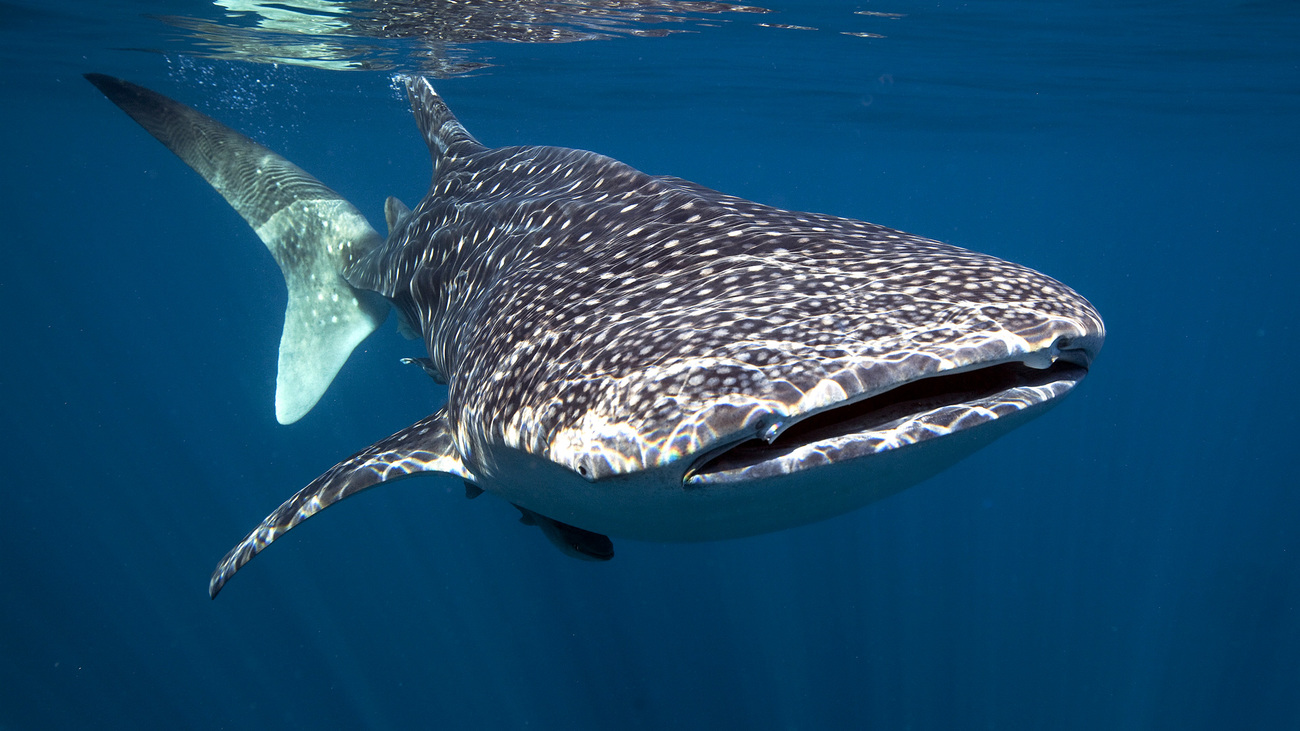A clean sweep for sharks: international trade protections granted
A clean sweep for sharks: international trade protections granted

More than 70 species of sharks and rays have been granted stronger protections—a move hailed as a watershed moment for marine conservation by the International Fund for Animal Welfare (IFAW).
Whale sharks, and all manta and devil rays have been uplisted to Appendix I at a UN conference by the Convention on International Trade in Endangered Species of Wild Fauna and Flora (CITES). This represents the highest level of protection, which bans all commercial international trade of these species and their products.
Today’s wave of protections follows on from yesterday’s decision, where the critically endangered Oceanic white tip shark was also granted the highest protections.
Manta and devil rays (mobulids) face severe pressures—all nine known species are threatened with extinction according to the latest IUCN Red List update in October 2025.
Although manta rays were first listed on Appendix II in 2013 and the remainder of the family followed in 2016, populations have continued to decline—in some places by up to 92%. Trade in mobulid gill plates has not been effectively regulated or kept within sustainable limits, with significant levels of unreported and illegal trade persisting.
Fins from endangered whale sharks, the world’s largest fish, continue to be traded internationally. Their move to Appendix I will shut down commercial trade and provide a critical safeguard against further declines.
In addition, several species of guitarfishes and wedgefishes—many of them critically endangered—have had a zero annual export quota imposed, creating a near-total stop to legal international trade.
Tope and Smooth-hound sharks, prevalent in global meat and small fin trades and have been known to be sold under the generic term of ‘flake’ – a popular option in fish and chips in parts of the world, have also received CITES protections for the first time. These species were listed on Appendix II, meaning trade should only take place if it can be shown to be sustainable.
Gulper sharks—a deepwater species that are hunted for their liver oil, which is in high demand for the cosmetics industry, were also listed on Appendix II. Three-quarters of gulper shark species are threatened with extinction due to human demand. There are very
few regulations for catching deep-sea sharks anywhere in the world and as a result, in some regions, their populations have plummeted by 80%. Gulper sharks grow slowly, mature late in life, and produce very few young. Populations are also slow to recover once they’re depleted.
These decisions were agreed today at the 20th Conference of the Parties (CoP20) of the Convention on International Trade in Endangered Species of Wild Fauna and Flora (CITES).
Conservationists from IFAW welcomed the outcomes, noting that the listings reflect robust scientific evidence and widespread international concern.
Barbara Slee, Senior Program Manager at IFAW, said: “For too long, sharks that have roamed our oceans for millions of years have been slaughtered for their fins and meat. People may fear sharks, but the truth is we pose a far greater threat to them—with more than 100 million killed every year. These new protections will help shift that balance and recognise and honour these sharks as more than just fishery commodities.”
Slee added: “Around the world, sharks and rays are disappearing fast. Their loss would unravel the very ecosystems that keep our oceans healthy. This decision marks a vital step toward reversing that decline and preventing extinctions that once felt inevitable.”
CITES CoP20 opened in Samarkand, Uzbekistan on November 24th and runs until December 5th. All decisions taken during the Conference need to be endorsed by the final plenary session at the end of the Conference and will take effect 90 days after the Conference ends.
ENDS
Notes to editors
Proposals for shark protections were submitted by a broad coalition of governments, with Panama leading efforts to uplist oceanic whitetip sharks to Appendix I, whale sharks led by the Maldives, and manta and devil rays led by Ecuador.
Oceanic whitetip sharks received the required two-thirds majority vote, with 83% in favour. Appendix I proposals for manta and devil rays (mobulids), and whale sharks were granted protections by consensus.
Appendix II proposals for tope and smooth-hound sharks were led by Brazil and the EU, and were granted protections by consensus. Gulper sharks were led by the UK and EU and received the required two-thirds majority vote, with 86% in favour.
Zero-quota proposals for guitarfishes were led by Benin, and for wedgefishes by Senegal. Both received the required two-thirds majority vote, with 82% and 85% in favour, respectively.
Appendix I: Species threatened with extinction. Trade is allowed only in exceptional circumstances.
Appendix II: Species not necessarily threatened with extinction, but trade must be controlled to avoid utilisation incompatible with their survival.
Full species names
- Oceanic white tip sharks (Carcharhinus longimanus)
- Whale sharks (Rhincodon typus)
- Manta and devil rays (Mobulidae spp.)
- Guitarfishes (Glaucostegus spp.) and wedgefishes (Rhinidae spp.)
- Smooth-hound sharks (Galeorhinus galeus and Mustelus spp.)
- Gulper sharks (Centrophoridae spp.)
Press contacts:
Dominica Mack dmack@ifaw.org / +61 460 432 901
Kirsty Warren kwarren@ifaw.org / +44 (0) 7809269747
Related content
Our work can’t get done without you. Please give what you can to help animals thrive.